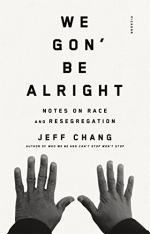|
This section contains 1,948 words (approx. 5 pages at 400 words per page) |

|
Resegregation
Chang's discussion of racial inequality in the United States is largely focused on resegregation to demonstrate that we are not living in a post-racial era and to underscore how desegregationist efforts in the post-Civil Rights era have been systemically undermined and reversed. One clear example of resegregation is found in Chang’s discussion of affirmative action. In the post-Civil Rights era, affirmative action programs began to redress racial inequalities at universities and other institutions. However, affirmative actions has had many opponents who argue “reverse racism” and who have succeeded in dismantling these programs, leading to resegregation on campuses and disparities in access to education and opportunity. A pivotal example of this was with the University of California v. Bakke case in the late 1970s which ultimately led the Supreme Court to find that the University’s admissions program was unconstitutional.
Efforts to find alternatives to affirmative action have...
|
This section contains 1,948 words (approx. 5 pages at 400 words per page) |

|




